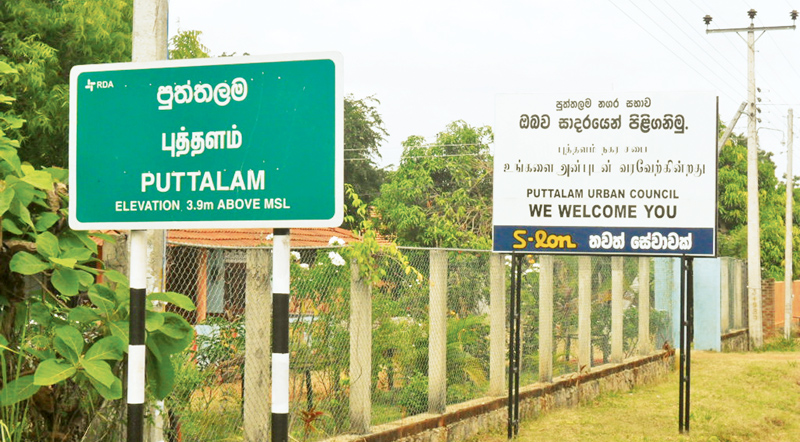I read in the papers with sadness that the old Puttalam-Mannar Road, today a magnificent highway, has been closed due to floods in Eluwankulama, after the opening of the spill gates of the Angmuwa reservoir. It is a matter for puzzlement as to why the precious overflow is not collected using a system of canals similar to the aqueducts the Romans used to bring water to Rome, into minor reservoirs, without allowing it to empty into the sea and used during the seasons of drought. As the biblical warning goes, seasons of plenty are often followed by seasons of famine.
My maternal great grandfather was a trader. He carried his goods in a bullock cart, with only the carter for company all the way on foot from Negombo to Mannar using church verandas in between to sleep and using the old Puttalam-Mannar Road then a jungle path infested by bandits. Like a Shaolin priest he was a master of the art of self defense easily putting the highway robbers to take to their heels. On the return journey he brought goods like dry fish to be sold in Negombo. To the unthinking reader it may sound like bringing coal to Newcastle. No, not at all because the Mannar Balaya Kelawalla, Katta dry fish have a special flavour that make them a gourmet’s delight, a delicacy much sought after, fetching a premium price.
My maternal great grandfather through sheer hard work became a wealthy man having enough resources to send his only son Robert Cyril, in a family of four, to St Joseph’s College Colombo. He was brilliant. During the prize giving at the Bonjean Hall he could hardly return to his seat when he was summoned to receive another.
Executive engineers
His prize winning subjects apart from the General Proficiency were English, Latin, Greek, Maths, Physics and Chemistry. It was after he demonstrated his brilliance the family decided to send him to England where he breezed through the exams to qualify as a Fellow of both the Institute of Civil and Structural Engineers. His spoken and written English were magnificent often standing on a soap box with the like-minded in Hyde Park, haranguing the crowd demanding independence for the Irish for which he was decorated by Pope Pius XI at the Vatican.
He returned to Ceylon and joined the PWD as an executive engineer and given the task of building the Mannar steel bridge where on a brass plaque reverted on the bridge is the name Robert Cyril Fernando, executive engineer, a fashion at that time where steel bridges carried the names of executive engineers most of them, albeit, British and Scottish names. He married a rich man’s daughter from Katana and settled there but never forgot his mother who was then a widow, sending his driver every month in his Bentley to Negombo with a bottle of Hennessy brandy and a handsome stipend for her upkeep.
Prof. E.O.E. Pereira who was attached to the TransWork office of the PWD in Fort, before he became the Dean of the Faculty of Engineering of the University of Ceylon, knowing the connection, spoke highly of my grand uncle and admitted that he eagerly awaited to read his annual reports because they were written in the classy style of Macaulay.
Shakespeare’s master pieces
I was barely a couple of years old when he came to his ancestral home in Negombo during Christmas for the mid-night Mass and to wish his mother and sisters. After wishing them he will sit in the verandah, order the driver to bring the Christmas hamper and sit till morning enjoying with his brother-in-law and my father.
One Christmas he gave my father, then an English school teacher, the complete bound volumes of Shakespeare’s master pieces written in Old English. They say I am a chip of the old block. That is not the truth but a mere fantasy if I may quote the words of Euripides in Ion in 44 BC. I am unworthy to tie my grand uncles shoe laces. The only thing I can think that is in my favour is I am still lean as a lamp post, the same figure l had when I was burning the tracks. His size made him studious, more interested in smart books than sports.
He steadily climbed the ladder and days after he was appointed Provincial Engineer, a step below Director of Public Works, he had complained of a side pain which the doctors diagnosed as appendicitis. An appendectomy was undertaken. When the surgeons were struggling to find the appendix his mother, a widow, who was kneeling and praying outside, told the others she heard the tolling of bells. He was 53.
If he had lived he would have been the first Singhalese Director of Public Works. The Central Hospital then was not the magnificent structure it is today. I remember my mother telling me, then a tot, to climb a chair and see through the fan light and tell her what was happening. I remember seeing the surgeons and physicians by the bedside, and hearing the heavy breathing and the smell of the whiffs of Chloroform.
In the old tombs what we find is not the familiar Requiest in Pace, Rest In Peace but Tradere in Pace, Sleep in Peace. Those words l offer my grand uncle whose memory I cherish.
I have drawn a long list of names of my wife, a Buddhist and her parents also Buddhists and my parents and ancestors all Catholics, in whose memories requiem Masses in Latin will be celebrated at the little Church in Kurana. My grand uncles name is there next to Fr Benedict Fernando, my Confessor, not a half baked but a fully baked theologian and a friend, at St Joseph’s College.



Add new comment